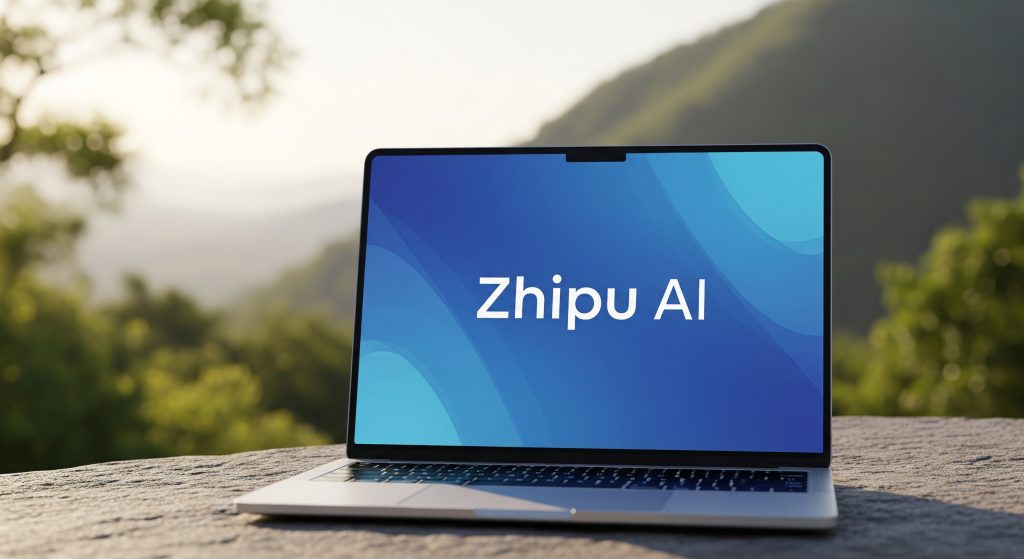Company Overview
Founders: Tang Jie (唐杰) and Li Juanzi (李娟子), both professors from Tsinghua University.
Chief Executive: Zhang Peng (张鹏)
Founded: 2019, as a spin-out from Tsinghua University’s Computer Science Department
Funding: Over $1.4 billion from Alibaba, Tencent, Meituan, Xiaomi, Saudi Aramco’s Prosperity7 Ventures, Legend Capital, and state-backed funds
Valuation: ~$2.8 billion USD (Dec 2024)
Background and Mission
Zhipu AI emerged from Tsinghua University in 2019 with ambitions that extend far beyond incremental AI improvements. The company has positioned itself as China’s answer to OpenAI, developing foundational models designed to achieve what CEO Zhang Peng calls “super cognitive intelligence that exceeds human levels.”
At its core, Zhipu’s technology centers on the self-developed GLM (General Language Model) series, which excels in natural language processing through a unique “autoregressive blank infilling” architecture. This technical foundation has enabled the company to build a comprehensive AI ecosystem spanning conversational AI (ChatGLM), video generation (Ying), and autonomous agents (AutoGLM).
What Sets Zhipu Apart
1. Chinese-Language Supremacy
Unlike Western AI companies that retrofit English-first models for Chinese, Zhipu built its GLM series from the ground up for Chinese-language processing. The result: consistent top rankings in SuperCLUE benchmarks, making it the leading Chinese LLM in domestic markets.
2. Strategic Open Source Approach
Zhipu has mastered the art of selective open-sourcing, releasing models like ChatGLM-6B (over 10 million Hugging Face downloads) while retaining commercial advantages. This strategy has cultivated a developer ecosystem of 700,000+ users through its bigmodel.cn platform, driving remarkable growth: paying customers increased 20-fold year-over-year (2023-2024), while API revenue surged over 30×.
3. Geopolitical Positioning
Anticipating U.S. technological restrictions, Zhipu has embraced “full-stack independence.” Strategic partnerships with Huawei have produced sovereign “AI-in-a-Box” systems—pre-built servers using Ascend chips that allow countries to run AI locally while keeping data secure within their borders. Additional partnerships with Qualcomm enable on-device mobile AI deployment. This approach ensures the company can operate regardless of Western sanctions and has proven prescient as U.S.-China AI competition intensifies.
Global Expansion Strategy
Zhipu’s international ambitions extend beyond technology export to standard-setting. The company operates offices across Singapore, the UK, Malaysia, and the Middle East, establishing “innovation centers” in Indonesia and Vietnam. By providing sovereign AI infrastructure to governments in Malaysia, Singapore, UAE, and Saudi Arabia, Zhipu aims to embed Chinese AI standards in emerging markets before Western competitors establish footholds.
This “digital silk road” approach frames Zhipu as a “responsible, transparent and audit-ready” alternative to Western AI providers—a compelling proposition for countries seeking technological sovereignty. The “AI-in-a-Box” infrastructure particularly appeals to nations prioritising data security and independence from Western cloud services.
The IPO Context: China’s ‘Six Tigers’
Zhipu’s planned 2025 IPO marks a significant milestone as the first among China’s “Six Tigers”—the country’s leading AI unicorns including Moonshot AI, MiniMax, Baichuan Intelligence, StepFun, and 01.AI (led by former Google scientist Kai-Fu Lee)—to pursue public listing since the current AI boom began. These companies emerged from China’s “Hundred-Model Battle” where over 300 large models were released by 2023, with the Six Tigers representing the elite survivors who achieved billion-dollar valuations. With China International Capital Corporation (CICC) spearheading the offering, Zhipu’s success could trigger a wave of AI IPOs in Chinese markets.
Challenges and Risks
Despite its strengths, Zhipu faces significant headwinds. The company’s close ties to Chinese state funding and CCP officials—while advantageous domestically—may limit international expansion as Western governments scrutinize Chinese AI companies. Additionally, the global AI race is intensifying, with OpenAI, Google, and other Western leaders advancing rapidly.
The company’s reliance on Chinese government contracts, while providing stability, also creates vulnerability to policy shifts. Moreover, Zhipu’s aggressive international expansion may face regulatory obstacles in key markets increasingly wary of Chinese technology.
Market Implications
Zhipu’s trajectory reflects broader themes in global AI competition: the fragmentation of AI ecosystems along geopolitical lines, the race to establish technological standards in emerging markets, and the growing importance of sovereign AI capabilities. Success in its IPO could validate the Chinese approach to AI development and attract increased investment to the sector.
For investors, Zhipu represents both the enormous potential of China’s AI market and the inherent risks of investing in geopolitically sensitive technology companies. The company’s ability to navigate international expansion while maintaining its Chinese advantages will largely determine its long-term success.
As AI reshapes global technology leadership, Zhipu’s public debut will serve as a crucial test of whether Chinese AI companies can compete on the world stage while remaining anchored to their domestic advantages.
